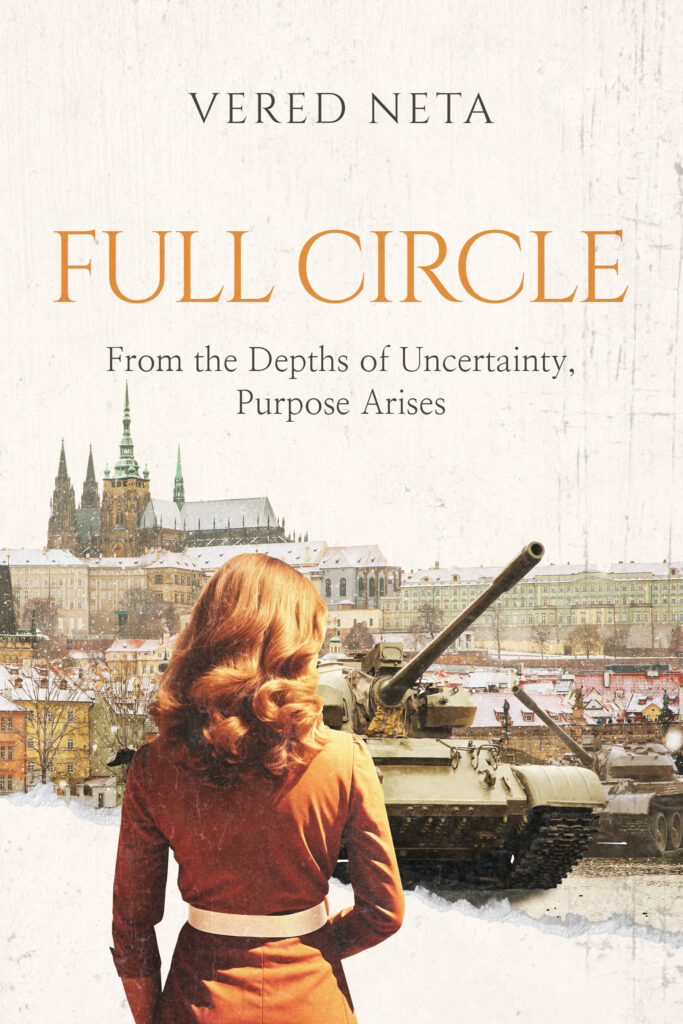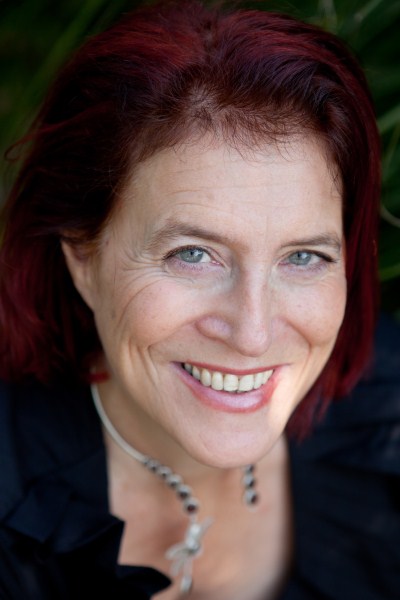

How did you come up with the title for your book?
I’ve always had this thing for the whole full-circle vibe. There’s just something magical about coming back to where you started, but this time around, you’re this whole new, wiser version of yourself. In everything I do, I’m all about bringing in forgiveness and kindness.
So, in this story where Ana has to forgive Jan and sort out all the crazy stuff that went down when she was young. It hit me that the only name I could give it is “Full Circle” It’s like the perfect snapshot of Ana’s journey, forgiving and growing, all wrapped up in a neat little circle.
How long did it take you to write this book?
It all started during the 2020 lockdowns and the George Floyd riots when I decided to write a movie script. I had this vision of a gripping tale of friendship between two women – one white, one black – battling against racism while exploring the intricate dance between freedom and friendship.
But, you know how it goes; sometimes, the best-laid plans need a little tweaking. Feedback rolled in, suggesting a bit too much of a “White Saviour” vibe. That’s when a friend said, “Why don’t you dive into the secondary story – that of Ana and her life during the whirlwind of the Prague Spring in 1968.”
That’s how I wrote the first draft of the novel. But I had my doubts, so I put it in the drawer and forgot about it until life threw a curveball – Russia invaded Ukraine. Suddenly, it hit me like a ton of bricks. Ana’s story, set against the backdrop of Czechoslovakia’s fight for freedom during Dubcek’s time, mirrored the struggles we were witnessing. It became a wake-up call, a reminder of a forgotten era caught between history and the present.
Enter “Full Circle.” This isn’t your run-of-the-mill tale; it’s a journey that forces us to confront age-old dilemmas – the clash between unyielding principles and the brutal reality of survival. As Ana’s story unfolds, it thrusts us into a world where freedom, bravery, and strength aren’t just buzzwords but the very essence of existence.
How long have you been writing or when did you start?
I’ve always been drawn to books. I was a “book nerd” even before that expression existed. However, I started writing only at the ripe age of 57 after having, as I call it, 3 Past Lives in this lifetime.
I’ve been an archaeologist, a top manager in high-tech companies and health institutions and, for nearly 30 years, a personal coach, trainer, and motivational speaker while owning and running the fastest-growing training centre for entrepreneurs in The Netherlands.
But after doing all that, I came to realise that I’m not growing anymore. I still had more things I wanted to learn and develop, which is how I came to challenge myself with a new career as a writer. Being heavily dyslexic, as a non-native English speaker, writing novels or scripts seemed like a Mission Impossible for me. Add to it years of non-supportive beliefs that I’m bad at writing and that I am not creative enough, that sounded like a good challenge to tackle and grow through.
How much research did you need to do for your book?
I’m an absolute history buff, and the spark for this journey was lit during the Prague Spring when I was just 8 years old. It was the first year we had a TV, and those sights of tanks rolling into Prague left a strong impression on me. So, I had a general knowledge of that period.
But when I decided to write the novel, I didn’t just want to skim the surface. I dove headfirst into the details – what people were munching on in Prague, the vibes of the streets, the literary landscape – the whole shebang. And that’s where the real adventure began. Researching Czechoslovakia during the Communist era turned into a bit of a detective story. While East Germany, Romania, and Poland life behind the Iron Curtain was fairly known, Czechoslovakia was hardly covered.
I didn’t want to settle for secondhand accounts. I craved the real deal, those firsthand stories. Trying to track down folks from that era for interviews felt like a quest for buried treasure. People were guarding their memories like classified information. So, I had to get creative, relying on TV interviews, translating texts, and basically playing the role of a historical detective.
So, to answer your question, the research for this book was no stroll in the park. It was a deep dive into the heart of an era caught between history and the present. But you know what? The adventure was worth every bit of effort!
If your book were made into a movie, which actors would play your characters?
As I said, it started as a screenplay, so I had a very clear idea of who I wanted to play Ana as a grown-up woman, and that hasn’t changed. But when it turned into a novel, I had more characters that were not in the original screenplay, and suddenly, it wasn’t that clear. In My Dream Cast, the older Ana is played by Jodie Foster and the younger by Dakota Fenning, Timothée Chalamet plays Jan, Rachel Weisz as Helen and Pedro Pascal as Pavel and Paul Rudd as Dan. As I said, it was a dream cast, which I knew would never happen, but one can dream, isn’t it?
What book (or books) are you currently reading?
I read several books at the same time. So, right now, I’m reading “Lessons in Chemistry” and “Eleanor Oliphant is Completely Fine” which I think is fantastic and for light reading I’m reading “The Ladies Swimming Midnight Club”
What is a significant way your book has changed since the first draft?
Initially, my book was this dual-timeline tale, bouncing between 2014 in Birmingham, Alabama, and the turbulent days of Prague in 1968. I was all about digging into racism and the concept of being “colour blind” – aptly named, “Color Blind.” But, when the feedback rolled in, I decided to hone in on the heart of the narrative – the gripping story of 1968.
I wanted to crank up the intensity, so I shifted gears, focusing on themes of forgiveness and letting go. Enter the eureka moment – “Full Circle.” The name itself became a beacon, guiding the narrative’s evolution. I decided to throw in a curveball of the collapse of the Berlin Wall and the Velvet Revolution of 1989 and now it was all about completing that circle, tying up loose ends and sending the storyline into a rollercoaster of emotions.
What was your hardest scene to write, and why?
The hardest scene for me to write was crafting a tender sex scene. It was like walking a tightrope, a delicate balance between expressing profound love and surrender, while ensuring clarity about the intimacy of the moment.
Imagine trying to strike the perfect chord – not too generic, not too explicit. It was a fine line to tread, a dance between a PG-13 portrayal and something more nuanced, relatable, and authentic for mature audiences. I found myself tiptoeing through the words, carefully selecting each one to convey the emotions without veering into excessive territory.
This scene was the one I spent most of my time in rewrites. Rewriting tirelessly until it felt just right. It’s fascinating how a seemingly simple moment can become the most intricate puzzle to solve in the grand tapestry of a book. The challenge wasn’t just in finding the right words; it was about capturing the essence of that intimate connection, making it resonate with readers on a profound level.
How do you develop your plot and characters?
In the battle between “Plotters” and “Pantsers”, I am definitely on the side of the “Plotters”. I can’t think of starting to write without a structure or a goal for that specific writing period. The thought of staring at the blank page is so scary for me. I have to start by having a clear idea, structure, and goal before even sitting down to write the poetic part of the writing.
I start with a huge Whiteboard that I have on the wall in my office, and from there, I use the Beat sheet option in Final Draft Software, whether it would be for scripts or novels, I MUST have a beat sheet before I start writing.
As part of my “Plotter”, I create the “Bible”, where I describe the characters in general, but not too many details as otherwise I will get lost. That way, I know where I am going, but I leave space for the creative part to appear once I start writing and the characters take off the page and lead me.
What advice would you give to a writer working on their first book?I think my best advice would be – NEVER GIVE UP. This one goes together with keeping learning, experimenting, and most of all, making sure you learn and grow through writing. In nutshell – read as much as you can other authors book and from different genres.
“Full Circle” can be purchased on Amazon Kobo & Barnes and Noble
Social Media links:
Website – https://veredneta.com/
Blog – https://veredneta.com/blog/
Facebook – https://www.facebook.com/VeredNeta60
Linkedin – https://www.linkedin.com/in/veredneta/
Goodreads – https://www.goodreads.com/author/show/6898568.Vered_Neta
Amazon Author Page – https://www.amazon.com/stores/Vered-Neta/author/B00C0808HU